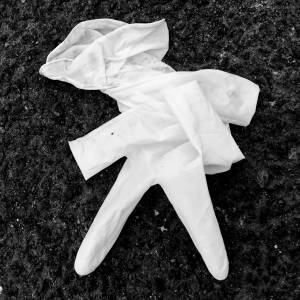The Twilight, The Streetlit Town, The Fisherman
Myself and my cousins Dave and Pat went to Boyle for the evening and spent the night there in a guest house. It was Boyle Arts Festival week (notice the bunting in the picture) and Pat had a couple of paintings in the exhibition at the restored Georgian mansion and ex-military barracks, King House.
We drove through a beautiful day, great blue gaps of heat and sunshine (the car like a hothouse), though the bullying rainclouds were never entirely absent. After booking in to the guest house, we walked into town and went straight to King House, which is the first substantial building you meet coming from that direction. The place was empty, just a young man and woman there to look after things. Flagstones and wooden floors, high ceilings and tall, plain-paned windows translating light into those slanted, yellow, rectangular compositions that often made the actual works of art look far too fussy and straining, or just hopelessly inept. But there were good paintings here and there (usually landscapes), and Pat's was one of these. His large exciting abstract was (for me) the most impressive work in the show, and it appeared to be the first to be blessed with a red dot. We were too early for the grand opening so we decided to go for a walkabout and find somewhere to drink.
We wandered around the town, taking in all the closed businesses, including the main hotel whose first story balcony/restaurant overlooking the Boyle River was visible from the street. Dave noted the plastic tables and chairs with tall mustard-coloured weeds growing between them. We met up with an old friend, Polly, and had drinks & laughter outside one of the pubs on the square at the top of the hill; my insistence on wearing my fleece on my head, as a makeshift headdress to protect myself from the sun, provided amusement fro all. We were sitting just around the corner from a house I once contemplated buying in the early naughties, just before the Celtic toy-tiger had fully roused itself. I had come into some money at the time, and the house was only £40,000. I am still sorry I didn't buy it, even though its value may well be sinking back to that level by now.
When we got back to the show we were mildly surprised to find it completely packed, as if the entire population of Boyle had abruptly materialised. And there were other festival accoutrements in the front garden, such as a fire-juggler and a clown-faced woman on stilts. Stilts always remind me of Yeats' 'High Talk', with that wonderful opening: 'Processions that lack high stilts have nothing that catches the eye. / What if my great-granddad had a pair that were twenty foot high...'
Later we found ourselves wandering around the still largely deserted streets looking for somewhere to eat. We eventually settled on a Chinese place off the riverside walkway, where we had a very good meal; mine was a mixed seafood black bean. We watched the lights reflecting on the rushing water. The river wasn't wide or deep but it seemed forceful, something you wouldn't want to jump into without a lifebelt on a rope. Eliot called the Thames 'a strong, brown god'. And many rivers are just that, even if they are considerably smaller divinities. I love being able to watch water, especially the sea. But the way a river takes light and runs with it has its own attraction. A river writes with light differently to how the sea does. Where the sea is an epic recorder and translator, a river writes on the hoof; it takes notes and dictation, possibly scribbles poetry. So to the man fishing in the blip. We passed him while crossing the bridge on our way from the restaurant where we'd had dinner. Near him is the other Chinese restaurant, the one we decided against.
Being from Dublin, I wondered if the water was clean enough to fish. It looks clean and doesn't smell, unlike the Liffey. And I had noticed fish jumping earlier, had heard the loud splash and seen the ripples. Trout? Whatever he was fishing for, the figure he made (a man fishing in the middle of town) was attractive and emblamatic, something that immediately took up residence in the memory.
After saying goodbye to Polly we went to Lavery's and settled into a snug at the rear till almost everyone had left but ourselves and the barmaid, Mary. She asked us if we'd mind being joined by a few people who smoked, as we were in the smokers' section (or the section sometimes reserved for the determined smokers). I don't smoke but I didn't mind. And so we became embroiled in a wonderful gossipy conversation with Yvonne, a schoolteacher from Sligo, and her husband Michael, and Mary, who eventually joined us. We talked about everything from the emptying town (the young leaving at a rate of knots) and my unknown Canadian father (Yvonne mistook my accent for a Canadian's) to locals who had fallen on hard times (as the cliche has it) and the undertaker who employed a man whose sole qualification was that he liked to wear dark suits (which led to Mary's memory of the man in an open coffin whose eye she had touched, only to see it promptly disappear (apparently corpses have to have their eyes carefully replaced after embalming as there is nothing to hold them in place once the brain is removed). No idea if this is likely but it made a good story. We stayed there till well after one.
- 0
- 0
- Canon EOS 5D Mark II
- 1/3
- f/2.8
- 48mm

Comments
Sign in or get an account to comment.


